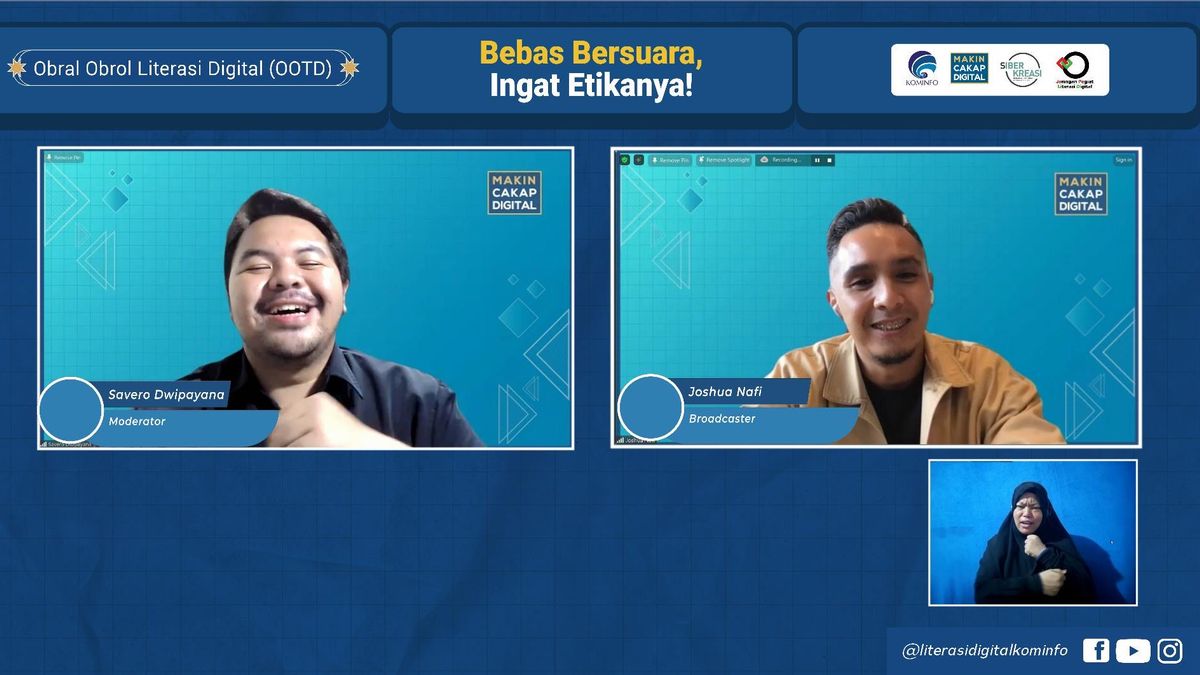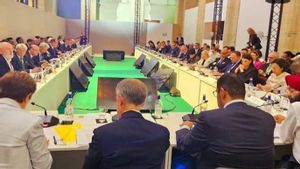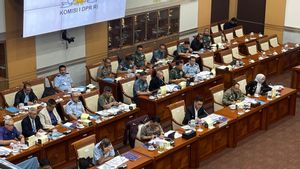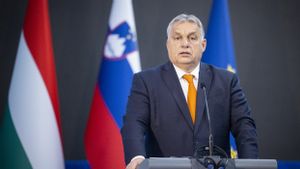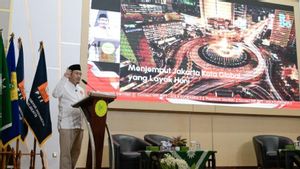JAKARTA - Indonesian netizens use an average of six hours of time a day to access the internet. Often, freedom of expression is defined by expressing opinions in digital spaces freely.
Based on Mafindo's data, hoaxes have doubled in the 2024 election compared to the 2019 election. The most common issues are political issues around holding elections, both in pairs of presidential candidates, as well as in the vote counting process.
The emergence of untrue news or hoaxes will only make the situation even more worse, so it is necessary for all parties to be aware of expressing opinions in the digital space. Therefore, the Ministry of Communication and Information (Kominfo) held a Digital Economy Obral, on Friday, March 1, which raised the topic "Free of Voice, Remember Ethics!".
According to Novi Kurnia, from Japelidi and the Cybercreation Steering Committee, When interacting in the digital space, it means having a responsibilities towards fellow users.
Novi added that to increase awareness about digital ethics, it is necessary to uphold identity as a friendly Indonesian. Indonesia has a roadmap in digital literacy 'CABE, which is capable, safe, cultural, and ethical.
"That digital media ethical is important. Because this is a guide for us as citizens who have cultural diversity, as a guide for behavior in the digital space," added Novi.
Digital ethics needs to be improved because Indonesia has received the title of being the most disrespectful netizen. This is because digital literacy is still low. Based on research conducted by Kominfo, the digital literacy index has increased, although it is still on a moderate scale in pillars with ethical interpretations. Therefore, there must be awareness that anything uploaded on social media can be a digital footprint that will not be easily lost.
Broadcaster, Joshua Nafi said that ethical in the digital space is to maintain the ethics of communication with awareness, responsibility, integrity, and virtue that can be the basis for the form of maturity in interacting in the digital space.
Therefore, the importance of ethics in the digital world is something that cannot be separated from the digital world. Judgeing other people is sometimes one of the actions of netizens that still often occurs when facing information.
"Instead of preventing whether or not, it's better than within ourselves first who thinks, maturity is again. Imagine that social media users think first, is this true or not," said Joshua.
When able to think maturely in using social media, people can contribute to a more peaceful and good world.
Meanwhile, Content Creator Reza Nangin believes that freedom in the digital space is often not accompanied by ethics that trigger disputes and create an ecosystem that is no longer attractive.
SEE ALSO:
In freedom of opinion, it should be accompanied by an understanding in the context of discussion. Reza added that the attitude of politeness in expressing opinions must be the identity.
Reza also shared his experience when facing netizens regarding the issue of the presidential election, when he criticized content from other creators and received attacks that were actually released in the context of discussion.
"No, everyone has to respond, because our time will run out. If for example someone wants to seriously ask, they will definitely contact 'direct messages' and I will be more respectful," said Reza.
Commenting is not good on social media will actually harm yourself, because there is a possibility of intersecting with the ITE Law. So it has a long-term bad effect, such as having difficulty getting a job because digital traces are not well recorded.
The English, Chinese, Japanese, Arabic, and French versions are automatically generated by the AI. So there may still be inaccuracies in translating, please always see Indonesian as our main language. (system supported by DigitalSiber.id)
